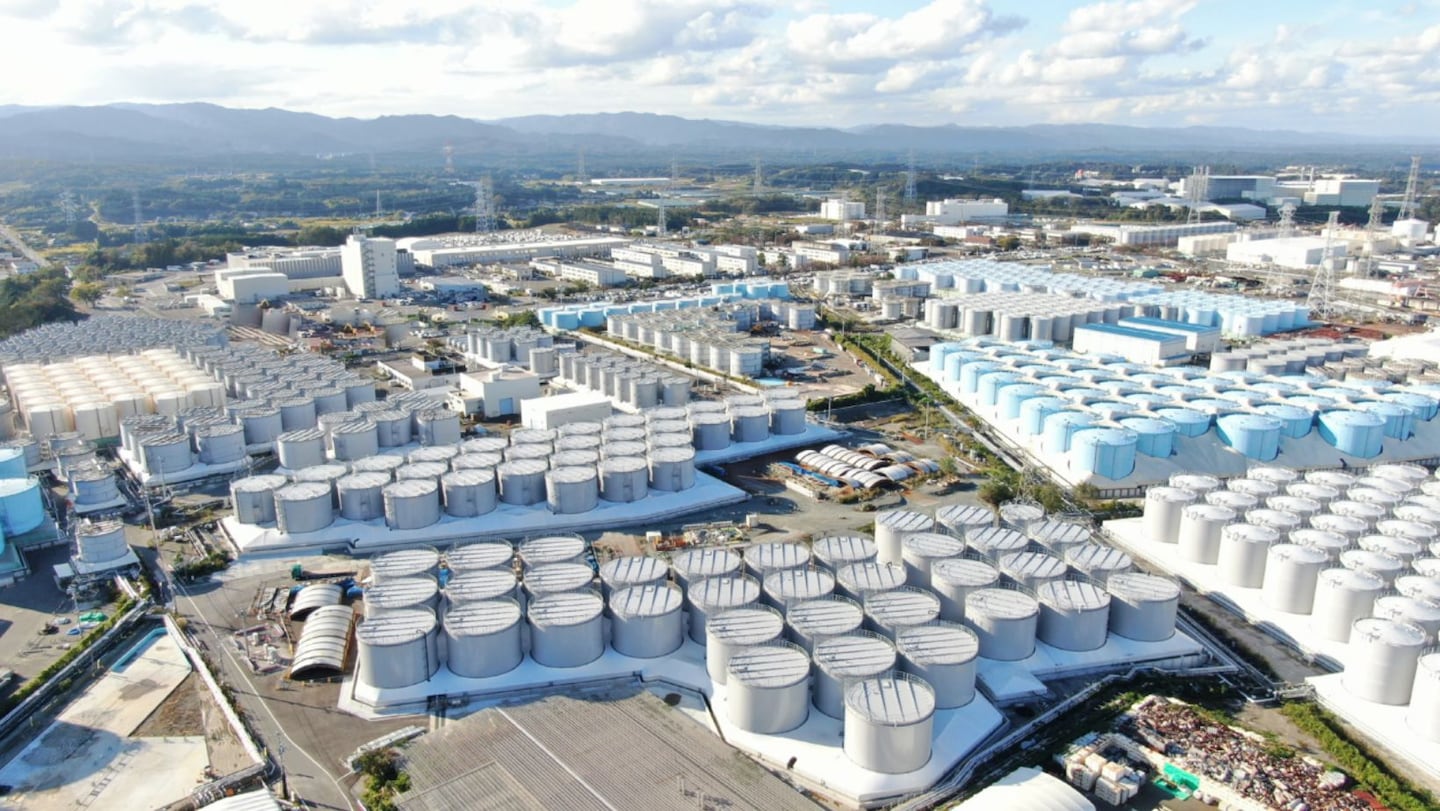Te Ao Māori News journalist Natasha Hill talks to Dr Arama Rata about the release of Fukushima’s treated nuclear wastewater and AUKUS. Rata, of Ngāti Maniapoto, Taranaki, and Ngāruahine descent, completed her PhD in psychology at Victoria University of Wellington in 2012. Her research focused on Māori cultural engagement, identity, and psychological well-being in state secondary schools. She is now engaged in research on Māori health experiences, rural Māori communities, and iwi consultancy.
Q. How might the release of Fukushima’s treated nuclear wastewater impact Māori communities?
The release of nuclear waste into our Moana is catastrophic for Māori, for peoples of the Pacific, and for all life on Earth. Our ocean plays a key role in regulating our climate but poor governance, overfishing and pollution severely threaten the life-sustaining capacity of our ocean. No environmental assessment has been done, so we completely reject Japan’s unsubstantiated claims that dumping nuclear waste could ever be safe. When we think of our rivers, we understand that hapū who live upstream have a responsibility to protect the awa for those downstream. The same is true for our moana.
Why is the ocean significant for Māori cultural practices and traditions?
Dumping nuclear waste in our Moana is a direct assault on our whakapapa. Te Moana nui a Kiwa is our ancestral and spiritual home. It’s our pataka kai. Our relationship to our moana is central to our past, present and future and we have a duty to protect it. This means ensuring nuclear and other toxic waste is stored safely on land.
What potential effects could contamination have on Māori fishing grounds and traditional practices?
Māori will be disproportionally impacted both culturally and economically as Te Moana nui a Kiwa is both our spiritual home, and because of the centrality of fisheries to our traditions and economy. Any contamination in our moana is not contained geographically. Radioactive waste will immediately impact migratory species, for example. Once radioactive waste enters the food chain, it becomes a threat to all ocean life and to our own human health.
How might AUKUS influence regional security dynamics in the Indo-Pacific region?
AUKUS is an anti-China, colonial pact that advances US strategic priorities but is a threat to the peace and security of the Pacific. AUKUS increases militarism in the region, escalating tensions and bringing us closer to war between nuclear powers staged in our region. If New Zealand were to join, our military would be integrated with US nuclear capabilities. Māori and Pacific leaders are committed to a demilitarised, nuclear-free Pacific, and wish to be the friend to all and the enemy of none. We must ensure New Zealand stays out of the AUKUS pact which would lock us into war between nuclear powers.
What are the potential indirect effects of AUKUS on New Zealand and Māori communities?
Joining AUKUS would be hugely detrimental for Māori. We rely on good relationships with other nations including China for trade and to address major planetary challenges such as climate change. Joining AUKUS would shatter our relationships across Asia Pacific and shift us to a war economy. AUKUS would also bring us closer to war between the US and China staged in the Pacific which would have horrific consequences Moana peoples. We should be investing in a just transition to a carbon neutral economy in collaboration with other nations, not investing in war.
What are the combined environmental and cultural concerns for Māori about the release of Fukushima’s wastewater and the AUKUS pact?
The AUKUS nuclear submarine pact and nuclear waste dumping both demonstrate a terrifying regression to nuclear colonialism in the Pacific, undoing the progress made by the Māori and Pacific heroes who led the NFIP (nuclear free independent Pacific) movement.




